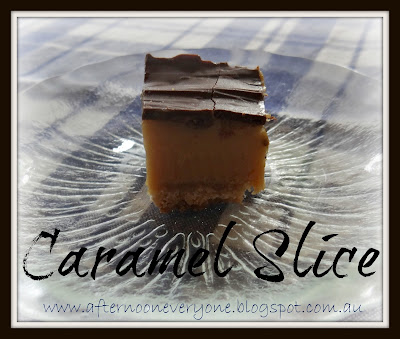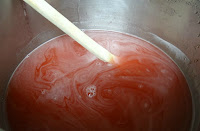Afternoon Everyone!
Plain old boring terracotta pots are out... chevrons are in!
I needed some colourful pots and I love chevrons at the moment. But putting a chevron pattern on a round pot was as little harder than I expected. So this is how I tackled the problem:
First of all you will need
- terracotta pot
- undercoat paint
- paint brushes
- ruler
- pencil
- masking tape
- acrylic paint (assorted colours)
- varnish
Terracotta pots are so cheap now that they are no longer in fashion. I got this one from the local hardware store for $3. The larger one in the above photo was only $10.
Undercoat the pot inside and out. I used an all in one sealer, primer, undercoat from British Paints. I needed to do 3 coats before the pot was completely white. Just remember that you need a totally white pot so the they colours will look their best when painted. I stopped lining the kitchen table with newspaper at this stage as I found that the print was rubbing off onto the pots and leaving black marks.
Turn the pot upside down and draw a pencil outline just under the lip. This will be the outline for the black at the top.
Now you will need to crack out your primary school maths formulas. When doing the chevrons you will need to divide the pot into an even number of sections. If you choose an odd number of sections your chevrons will not match up. I choose 6 for the smaller pots and 8 for the larger pot. The more sections you have the tighter your chevrons will look.
Now to work out the size of each section:
Measure the diameter (that's the entire width) of your pot on the bottom.
Times it by 3.14 to work out the circumference (that's the distance around the outside)
Divide your answer by the number of sections that you want.
Now you have the distance to be measured around the bottom of the pot for each section.
So the formula would be:
(πD)÷6
Here is what I did on my little pot:
10.5cm (diameter) x π (3.14)
=32.97cm ÷ 6
=5.495cm
I rounded it to 5.5cm
Using the ruler I measured the base of the pot into 5.5cm sections.
This process would be easier with a floppy ruler but my hard plastic ruler worked just as well. I simply rolled it around the base.
Since the pot is larger at the top than it is at the bottom measuring out the sections needs to be done a little differently. Once you have divided you pots into 6 equal sections on the base hold the ruler at a right angle against the top of the pot and visually line it up with that mark that you have put on the bottom of the pot. Put a mark on the top of the pot just under the lip on the outline that you have already drawn.
Place the ruler against the pot (matching up the marks on the top and bottom) and measure out the desired height of the chevrons. Use a pencil to place the marks. Mine are 1.5cm high.
Use masking tape to help with the painting of the chevrons. For my pots I went from the bottom mark in one section to the 3rd bottom mark in the next.
There may be a section at the top of the pot that will need some tape but you won't have any dots to match the tape up to. Although the heights have been measured out as 1.5cm high the actual width of the chevrons are slightly smaller. Use the ruler to measure along the top of the tape at 1.3cm. Place a few dots and the put the tape along the dots.
Here is a photo of the pot completely taped up.
Paint between the tape.
Carefully pull of the tape.
Paint the white chevrons over the undercoat with acrylic paint. Although the chevrons are already white, painting them with white acrylic paint will make the pot look more crisp and also some of the pencil marks may need to be painted over.
Paint the inside and out of the lip black.
Varnish the pots inside and out. This will help to seal the paint and stop it from pealing. I used an exterior clear in a spray can and did 2 coats.
Here are the other pots that I did before putting some plants in them.
And here they are again. I planted some herbs in them; lemon thyme, italian parsley and chives. Now to keep them alive...

































